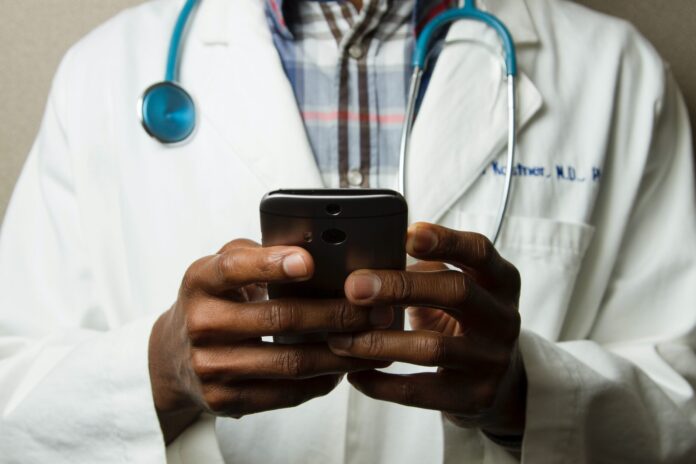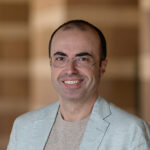Project team: Professor Shereen Hussein, Dr Mohamed Salama, Galal Abu El-Dahab
Egypt is considered the most populated Arab country with a 2.2% growth rate per year, with the population expected to be 151 million by 2050 (Colliers 2017). Additionally, Egypt falls behind in the quantity and quality of healthcare with a mere 1.5 beds per 1,000 people, 3.2 physicians and 3.6 nurses in 2014. According to Allianz Care, the general public health system and institutions consist of outdated equipment, long queues and inadequate staff which is primarily attributable to the low state investment into the health sector which represents 1.5% of GDP. As a consequence of the insufficient physician to patient ratio and substandard medical care, the ever-growing population size means that there will always be a growing demand for health and medical infrastructure services.
Now, more than ever, in the wake of COVID-19, individuals from all around Egypt find themselves without access to the medical care of the required standard. Their reach to specialists, physicians and medical care professionals is hindered by the spread of disease and precautions such as statewide curfew. The decrease in accessibility alongside, the poor quality of available medical care in Egypt make it paramount to deliver a new alternative viable of penetrating the opportunistic market.
As a result, telemedicine and health-tech arise as viable solutions to deliver more convenient and on-demand medical care, especially in underserved and overpopulated areas. This, as an alternative to traditional medical consultations, alleviates travel costs and additional effort required for both patients and specialists to meet in real-time. Furthermore, patients will possess the ability to access doctors anytime and anywhere posing a disruptive alternative to the medical scene as virtual clinics and consultations can take place online. Comprehensive diagnosis will be carried out by an array of certified doctors in all field committed to providing superior patient care.
Moreover, Egypt is considered to be a growing market for smartphone users as suggested by the International Data Corporation (IDC), finding that mobile shipments to Egypt were 14.9 million units in 2019 alone, with 72% being smartphones. This means that the ability for users across Egypt to connect to telemedicine and communicate on the cloud is increasing exponentially. Another interesting piece of information is the fact that 81.1% of all smartphones had been 6 inches or larger which is a great opportunity for patients to view and manage all medical profiles and telehealth conveniently.
In collaboration with the American University in Cairo, we conducted a pilot survey with a simple three questions to gauge the market. The questionnaire was sent to 500 individuals. The majority of participants believed developing an online platform for healthcare is of utmost importance.

The final question was the most directly oriented question from the whole questionnaire. It served to gauge the respondents’ view on which group of the population most needed such telemedicine platform. As expected, the elderly gained a considerable portion of responses which serves to show that the unique selling points of the system will be beneficial and effective to the community.

We have also conducted interviews with six medical professionals to understand the practical implications of such a model. We identified an initial idea of the potential use and functionality of a telemedicine solution, that is specific to older people in the region.
We organised such functionality into four categories:
Kashf (First time Doctor Appointment):
This Kashf will include short initial and full consultations with doctors via video call on the platform. This will serve as an opportunity for the patient to get in contact with the physician to ask for their help, explain their symptoms and render advice.
Estesharet (Check Up Consultation):
This Esteshara will act as a return consultation on previous meetings with the doctor, whether they be physical or through the Kashf service by. This will be a brief meeting emphasizing the updates of the patient’s case and possible medication from there onwards.
Roshettet (Doctor’s Prescription):
This Rosheta will serve as a summary of the online consultation providing the patient with the doctor diagnosis. At the same time, this will include all the medications and prescriptions that the doctor has recommended. Available at any time, saved to your unique patient profile.
So2al (Question your Doctor):
This feature provides doctors with the ability to ask any medical question that they would like. This will then allow other experienced doctors in the field to respond. Doctors will also be able to share articles, facts and developments in their speciality. Patients can search through the So2al tab to learn new things every day.
This pilot study indicates the the need for a telemedicine platform that is oriented towards serving older people and their family carers. Creating such a platform will not only reduce the accessibility barrier for those unable to reach medical care in person, but it is likely to open new opportunities for enhancing the efficiency of the health system. Incorporating medical files, complete patient history and an overall inclusive medical record will assist medical professionals in diagnosing patients more accurately and at an early stage. The telemedicine platform for the elderly would be an innovative way to better patients’ lives with a few clicks.




